‘Then I heard the gunfire’: The survivors fighting to create a future free from domestic abuse
Victims have been hiding in plain sight for a long time, but the pandemic has allowed many cases to fester at home. Natasha Phillips speaks to the women and men ensuring the Domestic Abuse Bill protects everyone

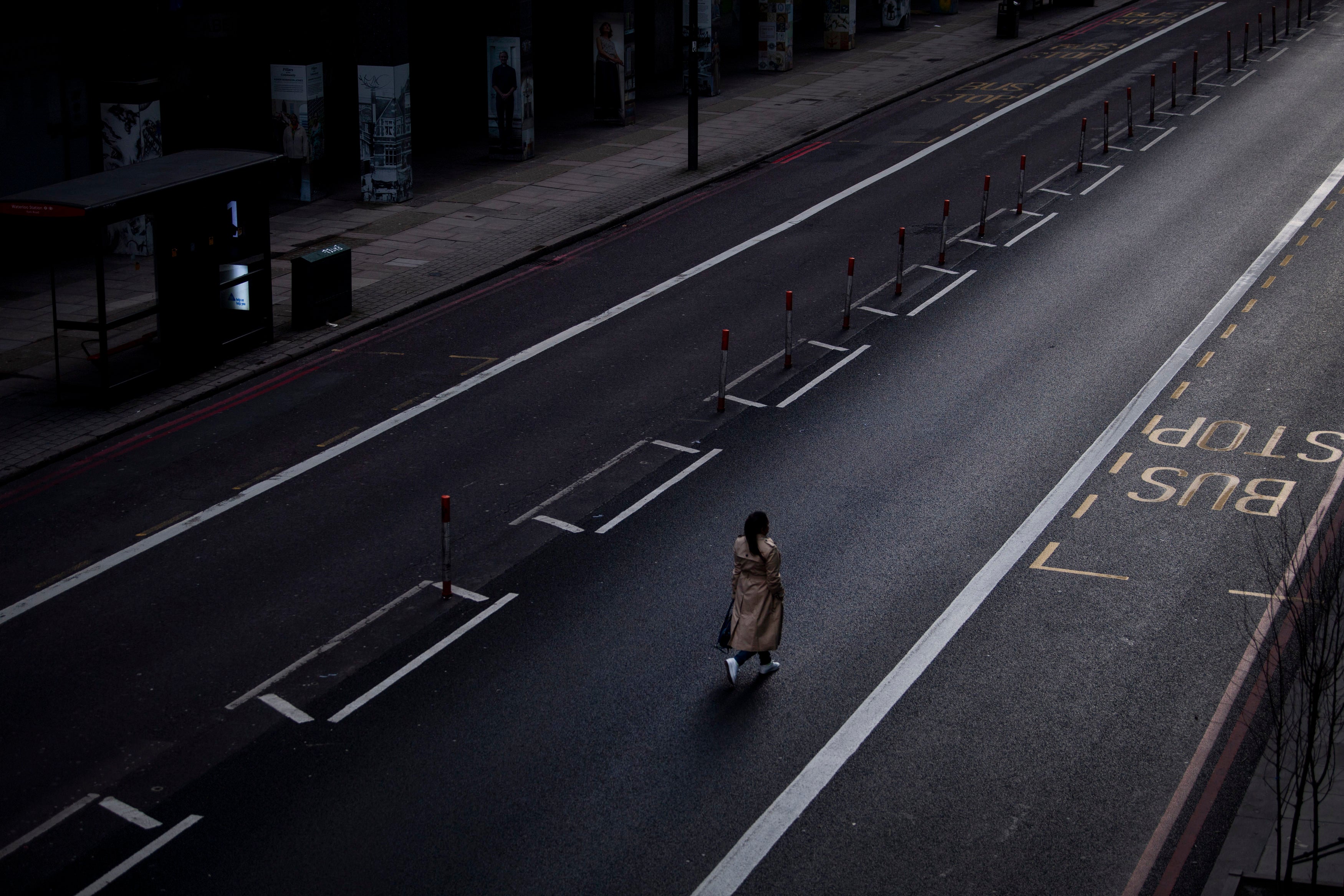
The first time Rachel Williams can remember an assault in vivid detail was when she was seven months pregnant. Darren, her partner, had walked up the stairs after an argument, gripped her by the throat and lifted her off the ground while she struggled to breathe.
“Darren only stopped when he noticed my lips turning blue. After that he was full of remorse, crying and telling me he knew he had a problem and needed help,” Rachel says, “so in those moments I made allowances for his behaviour.”
Charming and with a great sense of humour, Darren was attentive and kind at the start of their relationship. Within a year, Rachel, who was already a mother to Josh, her son from a previous partner, became pregnant with Jack. The manipulations were undetectable at first, but the pregnancy triggered Darren’s abusive behaviour and, in increments, he started to control Rachel’s routine and her social life. The year was 1995.
Working as a hairdresser, Rachel wasn’t allowed to cut men’s hair, or dye her own. On one occasion she had to ask a colleague in the salon to touch up her fringe to hide the blonde highlight she had added, because, she said, Darren wouldn’t like it. Her hair also had to be short, prim, to set her apart from the other women in town.
Darren’s rules of engagement went hand in hand with physical violence. Rachel was subjected to ongoing physical assaults in which she would be placed in strangleholds and have the back of her head punched without warning.
After an attack which left Rachel questioning whether she could live out retirement in fear of her abuser and with less to distract him, she decided enough was enough, and in 2011 Rachel told Darren she was leaving.
That declaration almost cost Rachel her life.
The news of the separation sent Darren reeling and he started to strangle her. Managing to break free, Rachel tried to appease him, a tactic she had learned from years of abuse. “There are things you instinctively do after a while, to try to survive domestic abuse and domestic violence: one is learning to stay calm so you can stay one step ahead,” Rachel says.
The incident, in which her partner also threatened to kill himself with a knife in front of the boys, resulted in the police building Rachel a panic room in the family home, complete with metal bars, locks on the windows, cameras, and an “instant alarm” which fed through to the police station.
But the worst was yet to come.
The following day, Rachel set off for work. It was a Friday and the salon was busy and filled with the sound of snipping scissors and hairdryers rumbling. At around 2.20pm, Rachel, who had just finished blow-drying a woman’s hair, felt a large shadow sweep across the window of the salon. Looking up to see what had obscured the light, Rachel noticed a man in the doorway. At 6 foot 7, and weighing 22 stone, Darren’s bodybuilder outline was unmistakeable.
Darren pulled a gun from his bag. Running towards him, Rachel tried to wrestle the gun from his hand, but Darren hit her with the end of the gun and they both fell to the floor. Connie, a salon regular in her nineties fell to the ground with them, as the front desk came toppling down in the struggle. The shop echoed with the sound of screams and customers’ feet shuffling frantically towards the door.
“His eyes were glazed over and he pointed the gun at my chest and told me he loved me. I asked him to think about the boys, I was trying to reason with him, but also had to be one step ahead, so I lifted my knees up and tucked them under my chin. Then I heard the gunfire.”
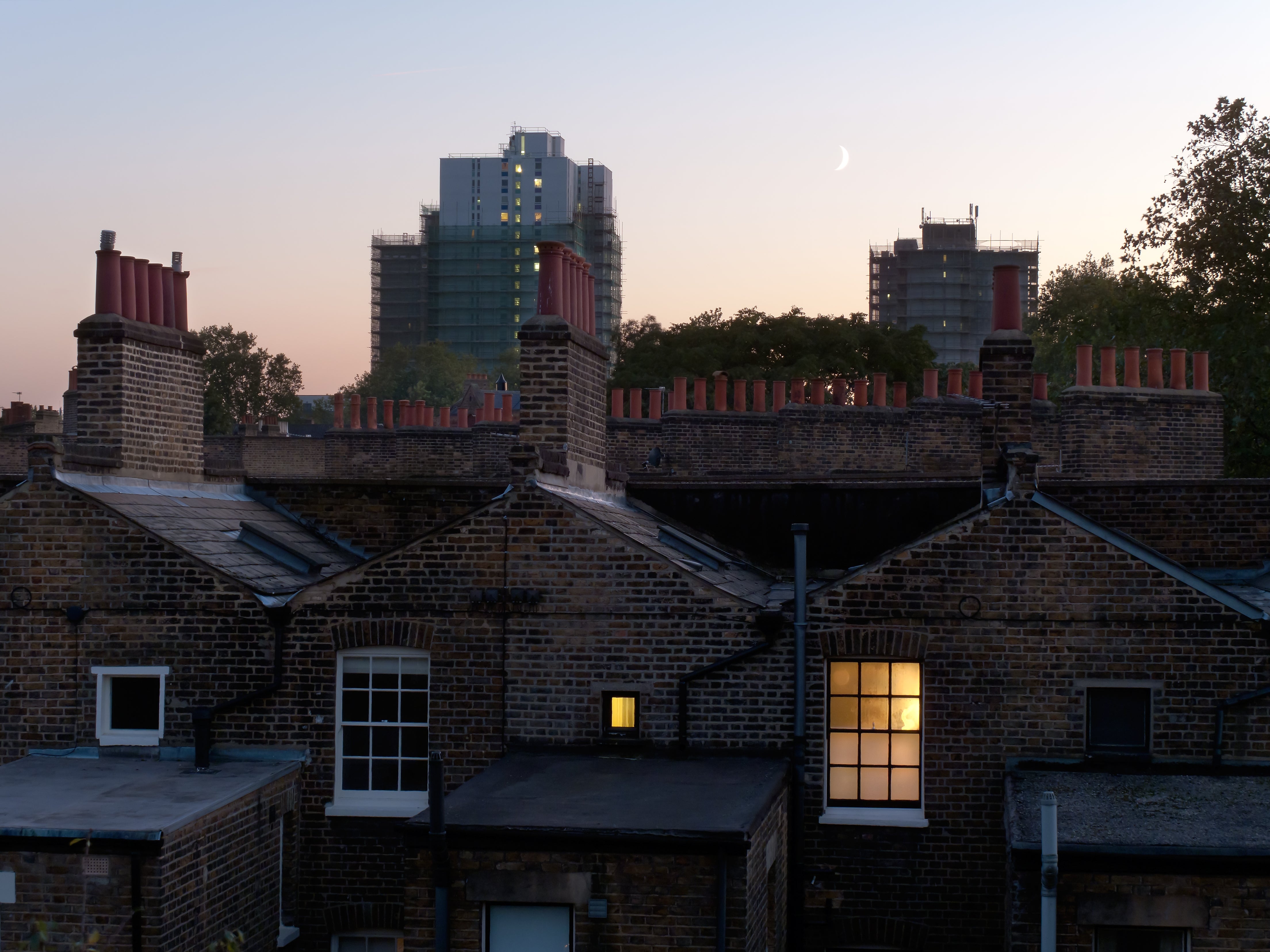
The first bullet hit Rachel’s left leg, while the second bullet narrowly missed her ear. Darren began kicking and punching her, hammering out bruises, black eyes and a cauliflower ear that would eventually need to be spliced seven times to repair. Darren turned around and left the shop.
The news that Darren had hung himself shortly after the attack left Rachel with an overwhelming sense of relief, following an ordeal that had lasted 18 years. But her freedom came at an unimaginable price. As well as suffering life-altering injuries from the gunshot and assault, Rachel’s son Jack, torn and tormented by his father’s abuse, took his own life weeks later. Jack was only 16.
Victims of domestic abuse in the UK, like Rachel and her sons, have been hiding in plain sight for a very long time.
The 2018/19 Crime Survey for England and Wales estimates that approximately 1.6 million women aged 16 to 74 experienced domestic abuse in 2017. In addition, data collected from the Crime Survey for England and Wales for the year ending March 2020 estimates that 2.3 million adults in the same age bracket in England and Wales, including men, experienced domestic abuse last year. That survey also found that the police had recorded a staggering 1,288,018 domestic abuse-related incidents and crimes in England and Wales, with a 9 per cent increase in domestic abuse related crimes alone.
Lockdowns designed to stop the coronavirus from spreading may have enabled a surge in abuse, left to simmer and boil over in the confines of the home. Information from the Office f National Statistics (ONS) about how the restrictions have affected victims of domestic abuse paints a fragmented picture, which identifies an increase in calls to support services but is unable to distinguish whether an increase in the number of domestic abuse offences recorded by the police is down to better recording practices or the pandemic’s vicious grip.
His eyes were glazed over and he pointed the gun at my chest and told me he loved me. I asked him to think about the boys, I was trying to reason with him, but also had to be one step ahead, so I lifted my knees up and tucked them under my chin. Then I heard the gunfire
The barriers for victims to report abuse also play a critical role in the recording and detection of domestic abuse, so much so that the ONS makes a point of stating in its publications that the figures are incomplete and don’t reflect the true extent of these crimes.
The government estimates that domestic abuse costs England and Wales approximately £66bn annually, and so it has set its sights on an ambitious new piece of legislation which it hopes will reduce its financial burden and create a more coordinated and seamless approach to tackling domestic abuse.
The introduction of the Domestic Abuse Bill is seen by some as a watershed moment for victims and survivors of domestic abuse. The bill has 12 key aims, including the creation of a legal definition for domestic abuse; the establishment of a Domestic Abuse Commissioner; new powers to protect victims from abuse; and a statutory obligation on local authorities to find safe housing for victims and survivors.
Having made its way through the House of Commons, the bill is now being scrutinised, line by line, in the House of Lords. Proposed amendments to the bill by peers have run into the hundreds, and as it becomes a battleground of ideas, those amendments, and the people behind them, reveal more than a little skin in the game.
Wrangling over clauses and phrases is a standard feature of any review process for legislation, but the Domestic Abuse Bill has stirred up unparalleled tensions which are now being played out in the Lords.
The government has tried to draft a bill that includes all victims of domestic abuse, but the effort has been strongly criticised by women’s groups, who say the “gender neutral” feel of what is a high level piece of legislation will further harm women and girls in a world where gender discrimination still affects most aspects of life.
Legal Action for Women (LAW), an organisation that offers legal advice and support to women going through Britain’s family courts, says domestic abuse is a gendered crime, whose victims are mostly women. That view is reinforced by available figures, the most well known being that two out of every three victims of domestic abuse are women. Additional research estimates that when it comes to inter-partner homicide, women make up 82 per cent of victims, while over 90 per cent of perpetrators are male.
Anne Neale, who leads the LAW team, says a gender neutral bill would create more opportunity for women’s abuse to be minimised.
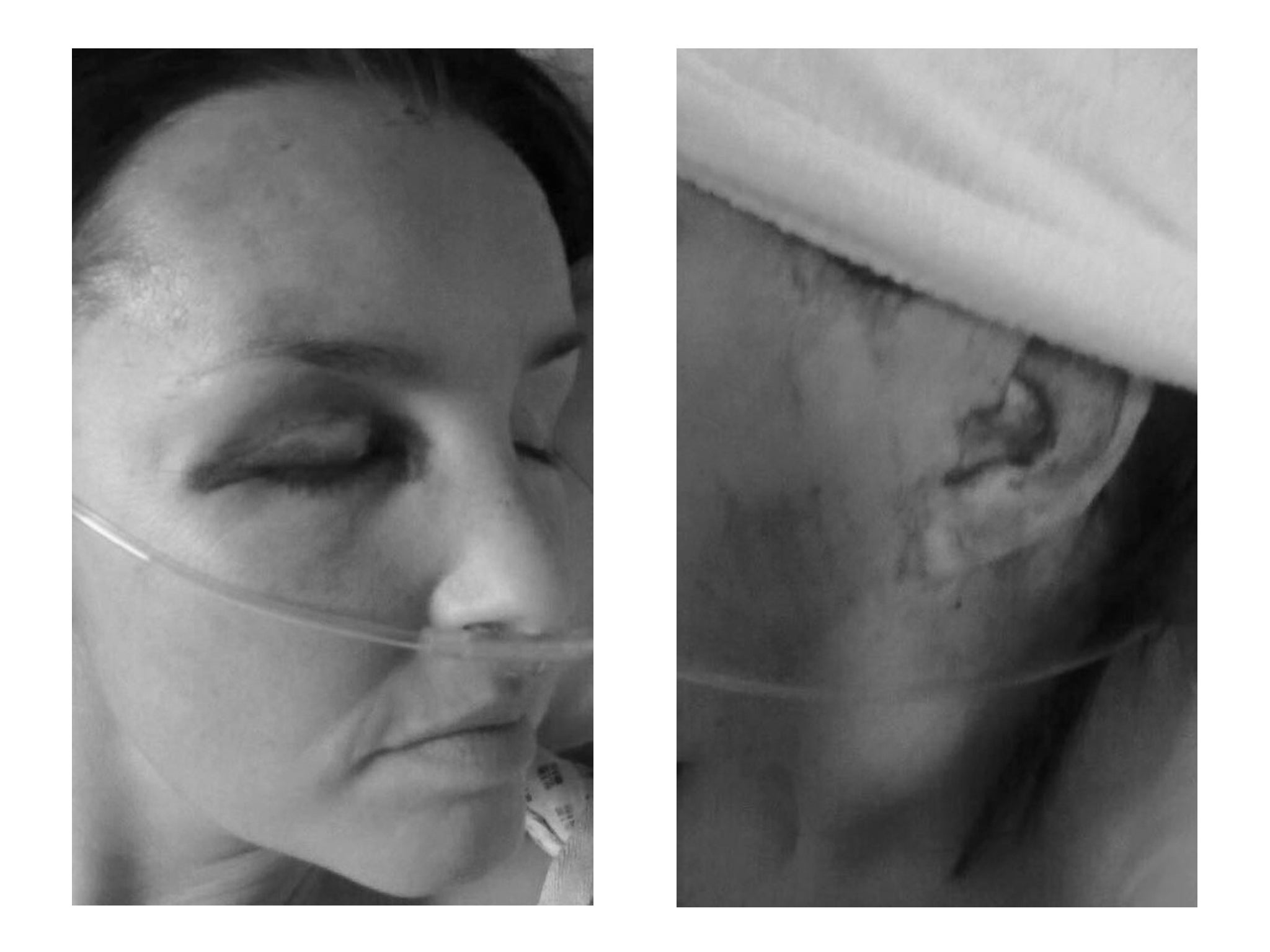
“We’re not saying the bill should refer explicitly to women, because obviously there are male victims. However, a bill that’s gender neutral is much more likely to be used against women because there is a power relationship in society between men and women. As women, by and large, we have less money, power, authority and so there isn’t a level playing field. If you don’t take that into account everything gets skewed,” Anne says.
That it’s taken so long for domestic abuse to be recognised in law underlines gnawing concerns women’s groups have about a gender neutral bill. Several of these groups have lobbied hard within the House of Lords to make sure those concerns are seen and addressed in the bill.
Baroness Anita Gale, who is one of the peers reviewing the bill, says the government always intended the bill to be limited in scope, but said the legislation had taken on a life of its own, as more groups placed their proposals on the table.
“Baroness Williams, the minister of state for the Home Office, always says this is a very narrow bill, which in a sense it is, but all the lobbying groups and everyone involved want to expand it,” she says.
Gale worked with women’s groups to draft her amendment, which if accepted would establish the gendered nature of domestic abuse in the bill. The amendment says: “It is a duty of the secretary of state in performing functions under this act to take account of the evidence that domestic abuse affects women disproportionately and is a subset of violence against women and girls.”
2.3m
adults aged 16 to 74 experienced domestic abuse last year
Explaining how she came to write her amendment, Gale says: “Refuge, which is one of the organisations I work with, gave me a very good briefing on it and then working with my front bench team as well, I said I’m going to put this amendment down.”
“In the Istanbul Convention, which the government has recognised, their latest report on the convention says the government’s strategy recognises the need to continue to challenge deep-seated social norms and behaviours that discriminate against and limit women and girls, as well as recognising the gendered nature of domestic abuse. If they can recognise it in this report, it seems strange they can’t recognise it in this bill,” she added.
The Council of Europe’s convention on preventing and combating violence against women and domestic violence, known as the Istanbul Convention, is a treaty designed to tackle violence directed at women and girls, which requires signed-up nation states to meet several criteria before being able to ratify the law. The UK has not been able to satisfy that criteria yet though it is working towards that goal, which includes publishing periodic reports on its progress.
Rachel agrees with Gale’s view. “If we’re not focused on women and girls it’s going to dilute the bill. Nothing will change for female victims of abuse without that recognition,” she says.
Fuelling those concerns is a growing row over migrant women whose immigration status is connected to their partner, leaving them more vulnerable to controlling behaviour, particularly if they try to leave an abusive relationship.
Many of these women get caught up in the “no recourse to public funds” rule, which prevents them from accessing crucial life-saving resources such as safe housing and tax benefits, even if those women have been legally working and paying taxes in Britain for decades.
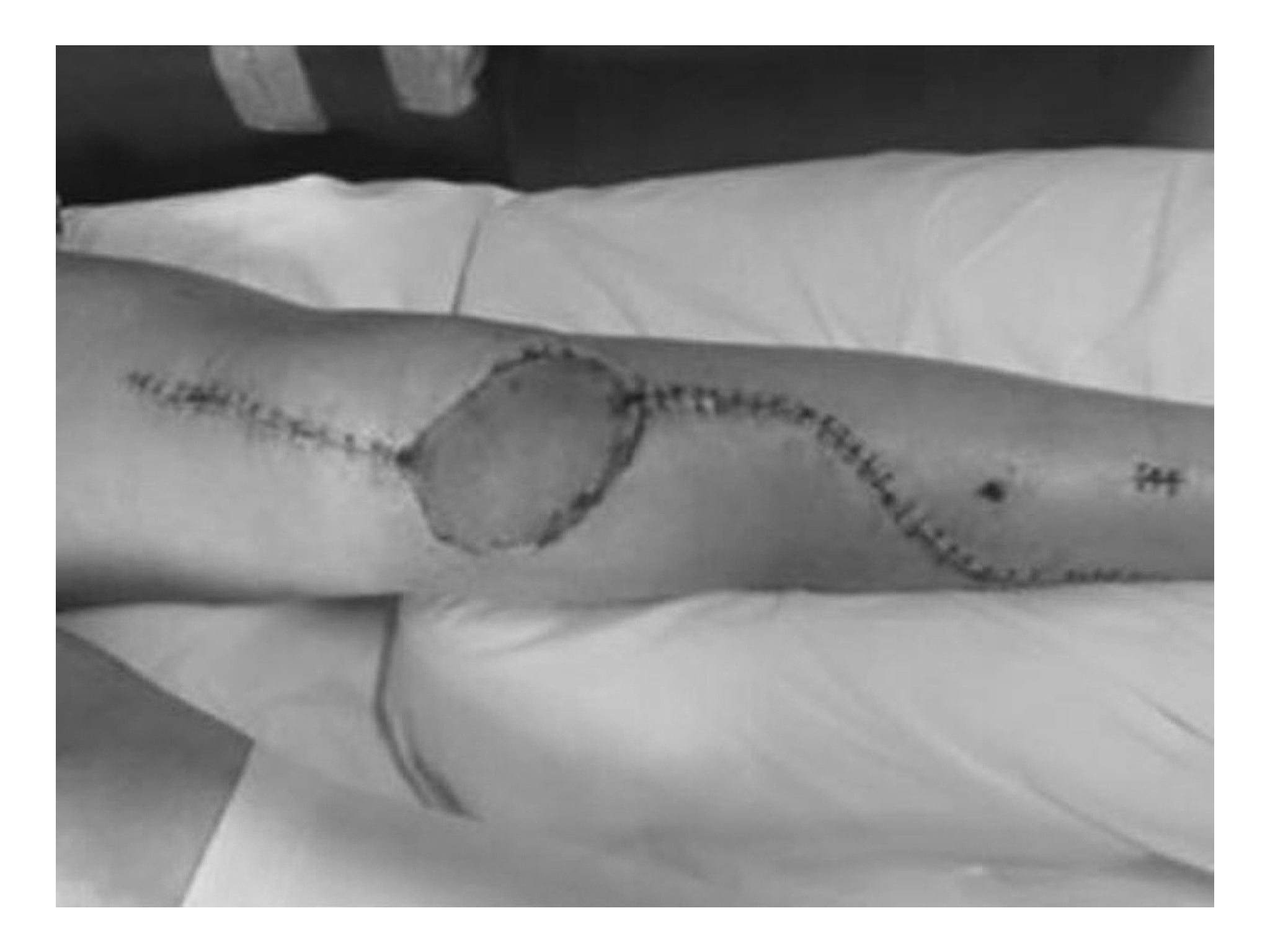
Migrant women subjected to abuse also live in fear of being deported if they try to get help as their efforts to access support can lead to their local authority notifying the Home Office for immigration control purposes.
Cristel Amiss, a campaigner at Global Women Against Deportations, and Women Against Rape, has been lobbying the government for months through these organisations to highlight the challenges migrant women face, which she says are far-reaching.
“The implications are immense for women fighting the battle to remain in the UK for safety and protection. There is so much crossover, particularly for mothers who don’t have independent status,” Amiss explains.
Although an original clause in the bill to help migrant women was set aside in the House of Commons, peers have revived the issue, putting forward amendments to the bill which would ensure migrant women exposed to domestic abuse can access financial support and limited leave to remain in the UK.
A separate clause seeking to prevent personal data belonging to migrant survivors of domestic abuse from being used for immigration control is seen by many as a game-changing measure for migrant women caught up in abusive partnerships.
I did think at one point I wasn’t going to be able to get up, but I quickly wrapped a towel around the gash and got in the car to go to A&E. That was the turning point. I knew I had to find a way to escape what had become 10 years of hell
The push to place women at the centre of the bill has not gone unnoticed by male victims of domestic abuse. Men’s support groups have mounted their own challenge to the idea of a gendered bill, informed, like female survivors of abuse, by personal experience.
Paul Chivers remembers going up to his bedroom after an argument with his wife Meena in 2014, which he thought had been settled. Still fuming from the disagreement, his wife reached for the hairdryer in the bedroom, pulled it out of the electrical socket and begun to swing it fast above her body.
Their nine-year-old daughter watched as the hairdryer rained down on her father, until a blow split his head open. She shouted at her mother to stop.
“I did think at one point I wasn’t going to be able to get up, but I quickly wrapped a towel around the gash and got in the car to go to A&E. That was the turning point. I knew I had to find a way to escape what had become 10 years of hell,” Paul says.
Paul reached out to social services for help, and they advised him to leave the family home with his daughter. When he asked for temporary accommodation, staff at his local authority said they didn’t recognise male victims of domestic abuse, so he contacted a close friend who took him and his daughter in for a few days.
Meena was arrested four days after the final attack, but it would take another year for the case to come to court.
During the trial, Paul told the court that his wife had smashed paintings over his head, hit him with household objects and broken front windows in their family’s sitting room. Paul also said that his wife had controlled their finances, made disparaging comments about his weight and locked him out of the family home at least 60 times over the course of their marriage.
Paul’s wife denied the attacks in court, but was found guilty in 2015 of grievous bodily harm and common assault, and sentenced to 16 months, eight of which she served in prison, and the remaining eight months under probation. A restraining order was also placed on his now ex-wife, after her release.

Paul’s greatest regret is the effect the abuse has had on his daughter.
“She had to give evidence at the age of 10 through a video link, for two hours, and the lawyers made her cry with the questions they asked her,” he says, his voice still swollen with anger.
“People also told us to stick to a routine after the trial, but it was the worst advice. I tried to go to work and even sent my daughter to school when she’d been through one of the greatest traumas of her little life, and it was the biggest mistake I ever made. I feel really guilty about that now. The last thing she wanted was to be away from me at that time,” he added.
Paul is now a trustee for Mankind, a UK charity which focuses on male victims of domestic abuse, and challenges the government on its female-centric approach to domestic violence.
“I’m pessimistic about the Domestic Abuse Bill. It’s good that the bill is addressing a very important issue that affects lots of people’s lives but my expectation is that it’s not going to do anything meaningful for people like me,” Paul says.
While 33 per cent of men are victims of domestic violence, when it comes to local services available for these men, it’s less than 5 per cent, so you have a significant amount of silent male victims
Mankind’s chairman Mark Brooks says there’s a big empathy gap when it comes to boys and men who experience abuse.
“Over the years we’ve seen the number of calls coming to our Mankind helpline treble. And while 33 per cent of men are victims of domestic violence, when it comes to local services available for these men, it’s less than 5 per cent, so you have a significant amount of silent male victims,” Mark says.
Mankind has asked the government to recalibrate the Domestic Abuse Bill, which the charity sees as pushing a female narrative.
“We’re talking to the government, and to be fair the government do want the voices of male victims. But, historically in the House of Commons and the House of Lords, the debate has focused on heterosexual female victims and what I’ve asked for is that when domestic abuse is discussed it should be far more inclusive, far more 21st century. We also want to see LGBTQ+ victims included as they’re often the most marginalised of all,” Mark says.
One of the government’s key initiatives to tackle domestic abuse is its Violence Against Women and Girls (VAWG) strategy, which Mankind supports but is quick to point out that men need their own strategy.
“We feel there should be a parallel VAWG strategy for men, because that reflects the way we’re moving as a society. It’s a recognition of diversity, inclusivity and equality,” Mark adds.
Another tender spot between male and female victims of abuse is a controversial clause in the bill proposing that parental alienation is embedded in the legal definition of domestic abuse.
No one accepted definition for parental alienation exists, though children’s social workers in the UK often describe it as the psychological manipulation of a child by one parent to incite feelings of hostility towards the other parent, usually after a separation or divorce.
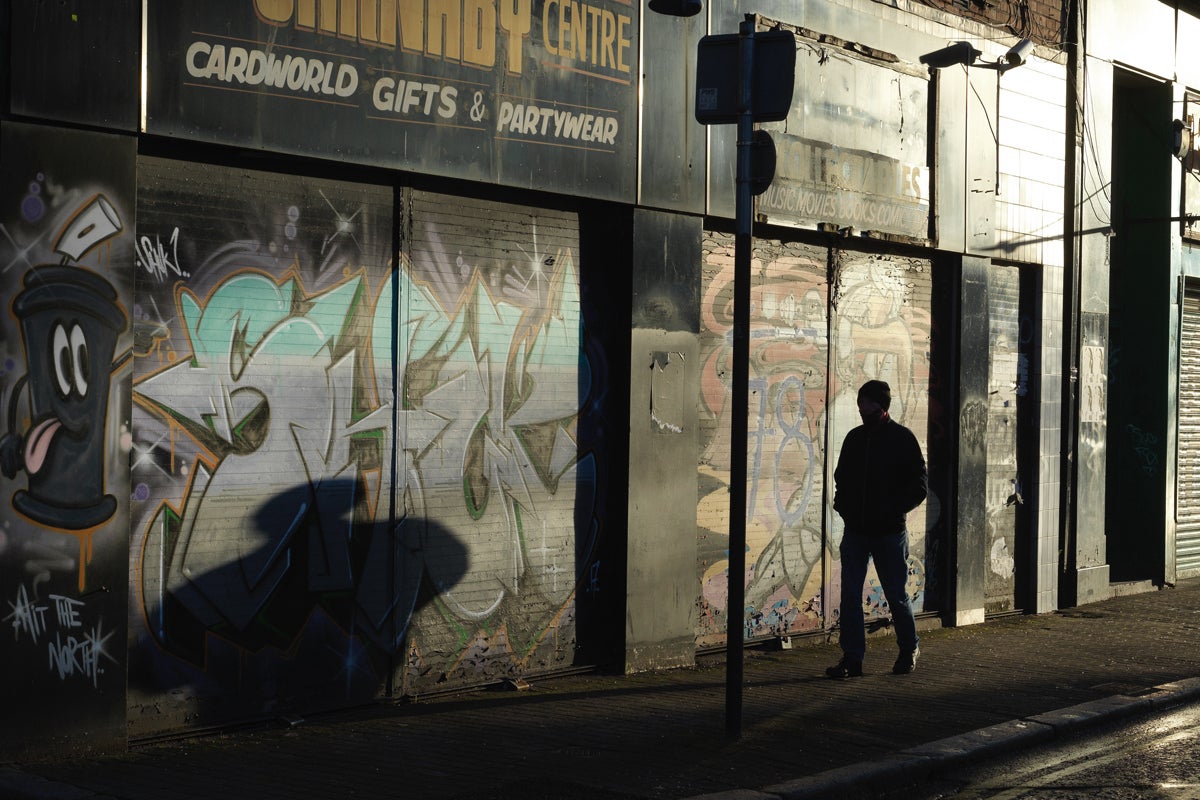
An attempt to insert parental alienation into the legal definition of domestic abuse was made by the MP Philip Davies, but later rejected as the bill moved through the House of Commons.
Now, the proposal has been given a new lease of life by Baroness Catherine Meyer, who has taken up the cause, spurred on by a deep and personal agony.
During a debate for the bill on 25 January, Meyer openly talked about her battle to see her sons after separating from their father. She had sent the boys to Germany to spend the summer holidays with him after he had relocated to the country, but they were never returned.
On one occasion after securing a hearing at a German court, her oldest son greeted her by hitting and kicking her, while her younger son refused to look at her.
Baroness Meyer was blocked by her former husband from seeing their children for nine years. As she fought, unsuccessfully, through England’s family courts for access to her children who were now living in Germany, Meyer also set up the charity Pact, now, Action Against Abduction.
82%
of domestic abuse victims are female
Meyer was appointed Commander of the Order of the British Empire in 2012 for her work through the charity, and has since been reunited with her sons, but, as she says in her speech in the Lords, the separation from her children “scarred me for life”.
The proposed amendment, which asks for the phrase “parental alienation” to sit alongside individual behaviours listed as abusive in the definition – set out as “physical or sexual abuse; violent or threatening behaviour; controlling or coercive behaviour; economic abuse; psychological, emotional or other abuse” – has caused an uproar among mothers who have survived domestic abuse.
A growing number of cases in Britain’s family courts appear to involve proceedings where parental alienation is raised, often by fathers, after a mother makes allegations of abuse and asks for protection for herself and her children.
Women’s organisations supporting mothers in England’s family courts argue that the parental alienation “counter-claim” is used by violent partners to distract attention away from the abuse and maintain control over the other partner and the children.
London’s independent victims’ commissioner Claire Waxman also criticised the proposed amendment to include parental alienation, in an interview with The Independent on 26 January, a move which she said left her “deeply concerned”.
A report in 2016 by Women’s Aid called Nineteen Child Homicides documented the deaths of 19 children killed by their fathers, after the family courts awarded contact. In several cases, the father already had a criminal record for assaulting the mother, or threatened to murder or eventually killed the mother after contact orders were made. Some of the children in these cases witnessed their fathers killing their mothers.
90%
of perpetrators are male
Controversial research by Joan Meier, a professor of clinical law and director of the National Family Violence Law Centre at the George Washington University Law School, published last year in the US, found that fathers were much more likely than mothers to win contact disputes when claiming alienation.
Furthermore, the research suggested the impact of alienation was gender-specific, and that fathers who alleged mothers were abusive were not similarly undermined when mothers cross-claimed alienation.
Meier’s research, the first of its kind, incorporated published court opinions from 2005 to 2014, and used those judgments to create a dataset of 4,388 child contact cases.
The findings garnered global attention from newspapers and victims. The research said that where fathers alleged mothers were engaged in alienation, regardless of any abuse claims, family courts took contact rights away from mothers 44 per cent of the time. When the genders were reversed, and fathers started out with custody of the children, courts removed children from fathers and placed them with mothers only 28 per cent of the time.
The research also found that even when the father’s abuse was proven in court, mothers who had alleged that abuse still lost custody in 13 per cent of cases. By contrast, fathers lost custody only 4 per cent of the time when a mother’s abuse was proven. But in cases which did not involve any abuse allegations, the data held that alienation had a more gender-neutral impact.
That parental alienation has found its way back onto the negotiating table for the Domestic Abuse Bill has left groups like Legal Action for Women concerned.
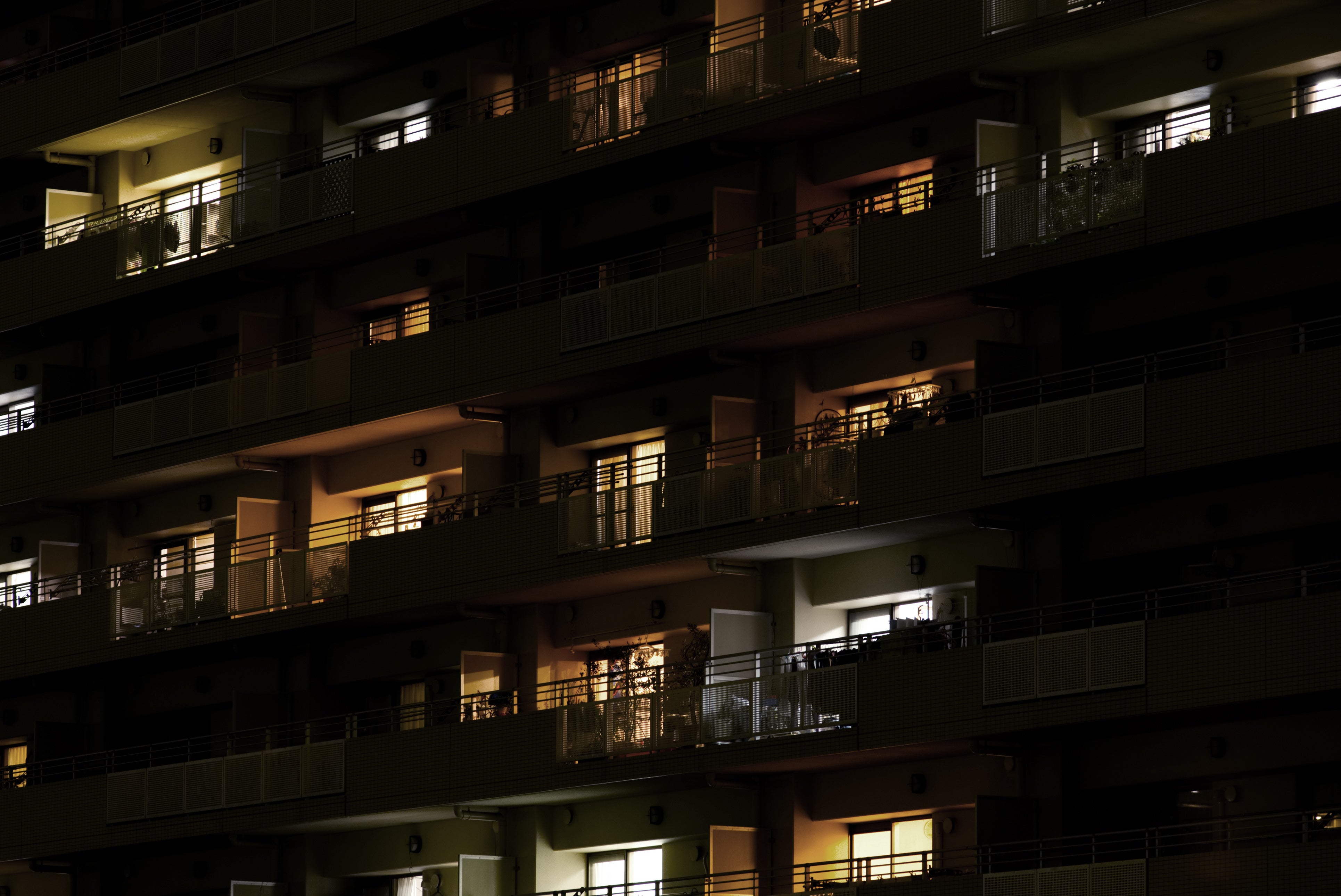
“We think it would be a disaster, and very dangerous for parental alienation to be included in part of the legal definition of domestic abuse, because we know that parental alienation is used against women who are victims. It’s a misogynistic tactic which is used to discredit mothers who are trying to protect themselves and their children from abuse. This will completely override the voices of children,” Anne says.
Baroness Rosalind Altmann, who is supporting Meyer’s amendment, doesn’t think alienation should be discounted because of its potential to be misused.
“It’s tantamount to saying you shouldn’t legislate for anything because somebody might make a false accusation and it won’t be safe,” Altmann says, adding: “I accept there will be examples of false allegations, but that shouldn’t deny justice and access to children, and opportunities to salvage the mental health damage done to these children.”
Like Meyer, Altmann has witnessed her family fracture and friends who have desperately tried to regain contact with their children in the aftermath of a separation.
“I have a cousin and a friend who have both been struggling with this issue, one of whom has managed to regain contact with his children, while the other has never been able to do so. Watching the devastation that it causes to those parents and the wider family is awful, and the impact on the children themselves, the mental trauma they have been going through but are unable to overcome,” she says.
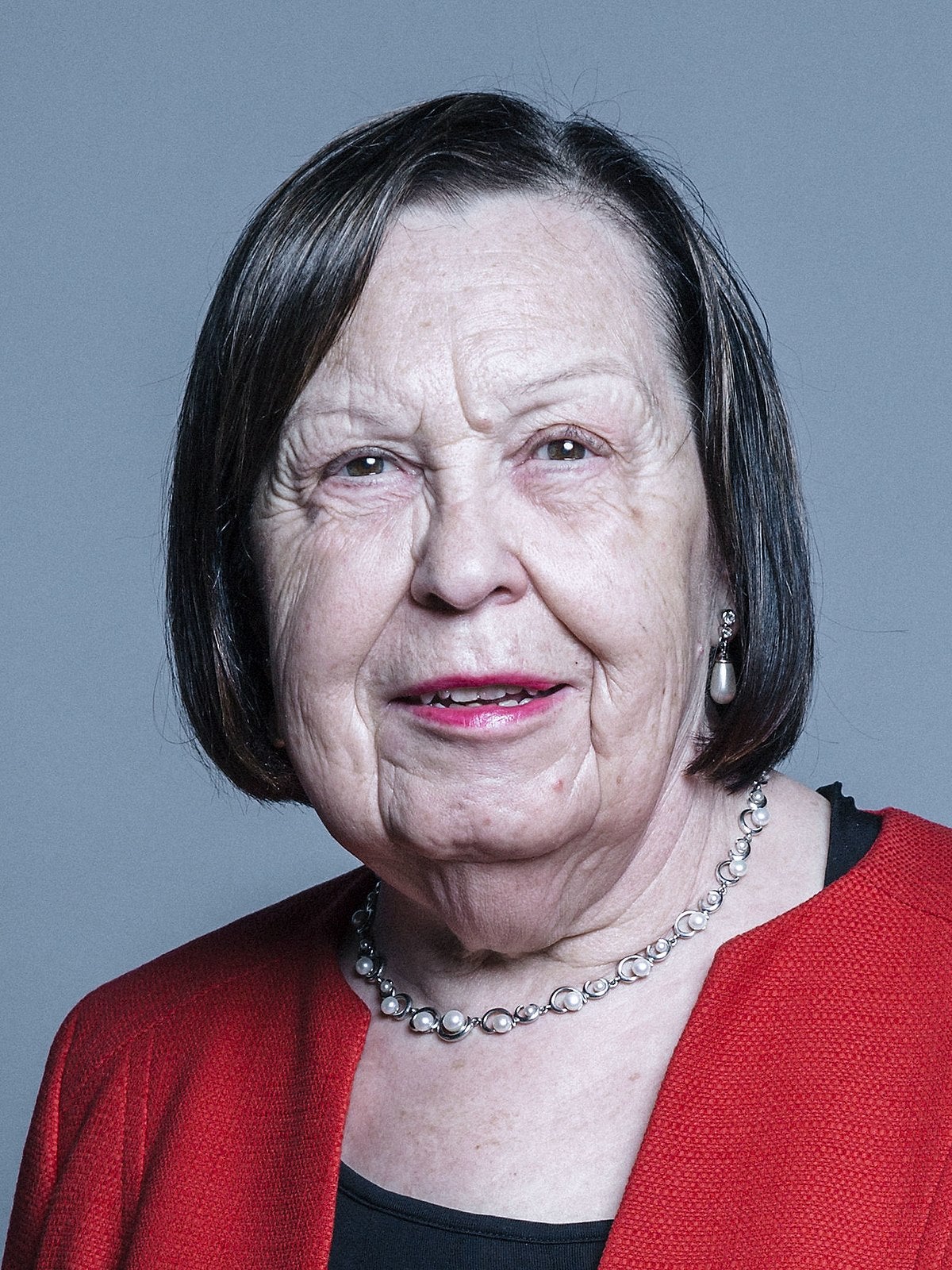
Mankind has also backed the amendment. “We are in favour of it because we think parental alienation is a distinct type of domestic abuse. If the government won’t accept its inclusion, they should make sure the range of abusive behaviours that constitute parental alienation are included in the statutory guidance,” Mark says.
While male and female victims of domestic abuse and the organisations who support them are unlikely to ever agree on the gender orientation of the Domestic Abuse Bill, or the concept of parental alienation and whether it has any place in the bill, there are issues they do agree on.
One of those issues is the likelihood of legislation like the Domestic Abuse Bill being able to bring about meaningful changes on the ground for those who need it most.
Rachel, who launched Stand Up To Domestic Abuse (SUTDA) in 2019, an organisation which helps victims and survivors, has also worked with the Home Office to help inform government policy on domestic violence. Her biggest concern is that levels of understanding about domestic abuse in local authorities and support services remain dangerously low.
“My case and my tragedy was, more could have been done because the evidence was there, for example in the recording of Darren’s previous offences. Sometimes in domestic abuse cases you’re missing all these significant pieces because in the viewer’s eyes they’re small and they can’t see them, and it takes a bit of digging, and joining the dots,” she says.
As part of SUTDA’s work, Rachel runs a course called the Freedom Programme, which is designed to help survivors and victims heal and move on from the trauma of their abuse. She explains, sounding horrified, that professionals trying to tackle domestic abuse feel completely lost.
“Social workers are telling me they’re making poor decisions because of lack of knowledge. They only have half a day of training on domestic abuse and violence,” she says.
“One of the women that contacted me was a Children and Family Court Advisory and Support Service social worker, who was going through the system as a victim of domestic violence and she could not believe the cruel and inhuman treatment she was receiving. Even her colleagues were completely blasé about what she was going through.”
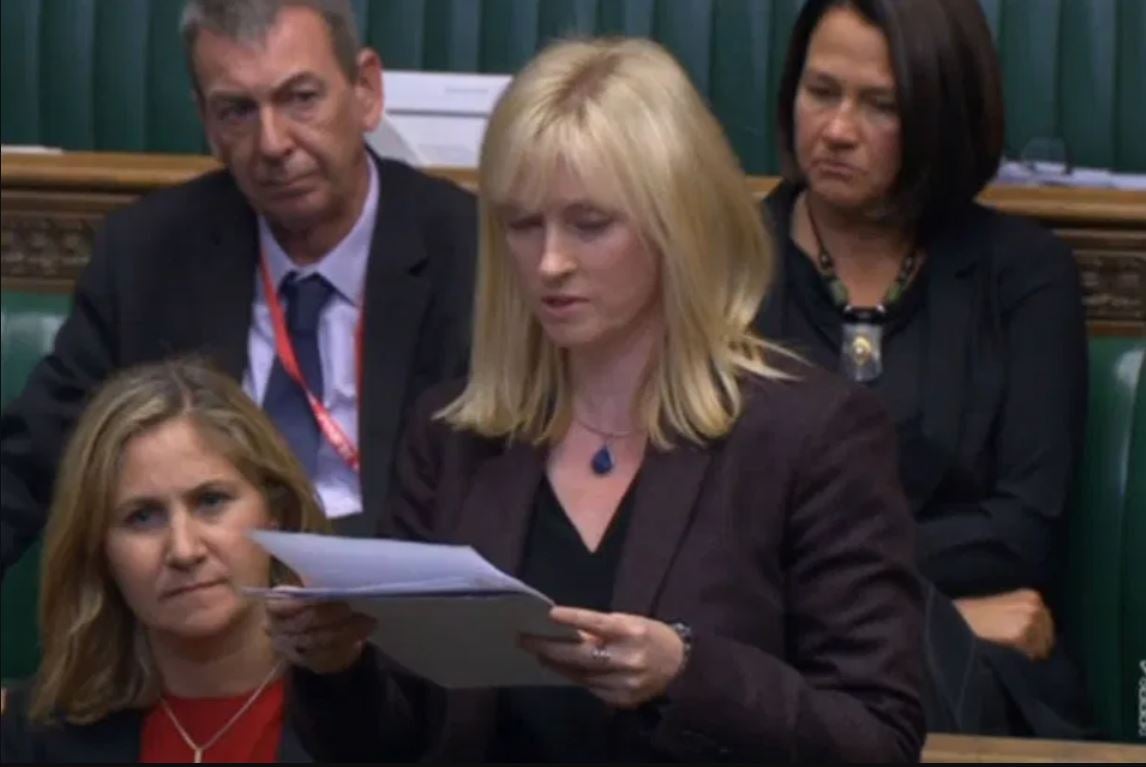
Rachel says judges and solicitors have also confided in her after being shocked by the way the family courts handle domestic abuse cases.
“One solicitor said perpetrators in the family court were routinely appeased and patted on the back for going on perpetrator programmes, though it was obvious they hadn’t changed at all. Some of these programmes are really, really poor. The work would need to take many months, working with offenders and challenging their behaviours and their beliefs,” Rachel says.
Clare Ciborowska, a family barrister at 1 Crown Office Row and an expert in domestic violence applications in the Family Court, says there are serious problems inside the courts which she worries the Domestic Abuse Bill may not be addressing.
One such problem is an old fashioned and at times patriarchal outlook on relationships.
“There are some very outdated judicial attitudes about women, about relationships, about a woman’s ability to extricate herself from an abusive relationship, and she’s often asked why didn’t you just leave? You stayed in that relationship for two more years and had another child so it couldn’t have been that bad.”
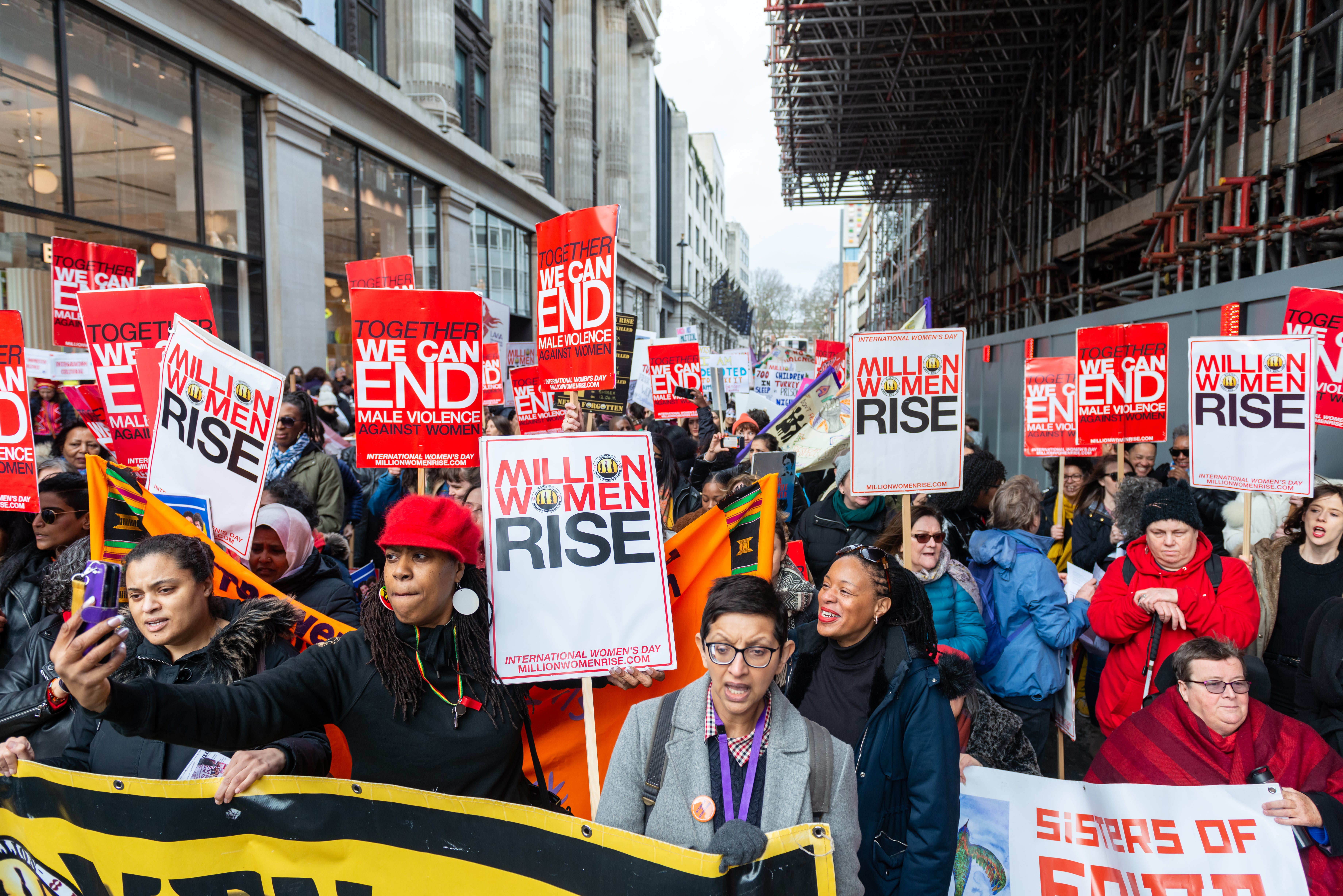
Consent, Clare says, is also still hugely misunderstood.
“A person doesn’t want to necessarily say they’ve been raped, but I’ve had cases where women have said, ‘it was just easier to say yes, because it wasn’t worth it if I said no’. It’s that outdated concept of saying, well, she consented to sex for the first three times and all of a sudden she says that the sex was non-consensual but the evidence suggests she’s lying about that. Sometimes things are not that black and white.”
The court rooms themselves, Clare says, are also an issue.
“Where you have individuals who can be triggered as a result of a mental health condition for example, the court rooms and buildings are not designed appropriately. If you’re unrepresented and you’re going along to a hearing alone to face your violent ex-partner in court, and you have to go round the back of the court and there’s nobody there, that in itself can be deeply traumatic. It’s those practicalities that need to be highlighted.”
Another difficulty in domestic violence cases is that victims don’t always realise they’ve been abused, making it even harder for courts to detect.
“It was only after my third time talking to one particular client that I started thinking this is actually quite insidious behaviour and started asking her more detailed questions. However, working this way is difficult. You’re in a very busy courtroom usually, trying to find out which court room you need to go to, in an awful waiting room with a fan that’s so loud you can’t hear and chairs that are falling apart,” Clare explains.
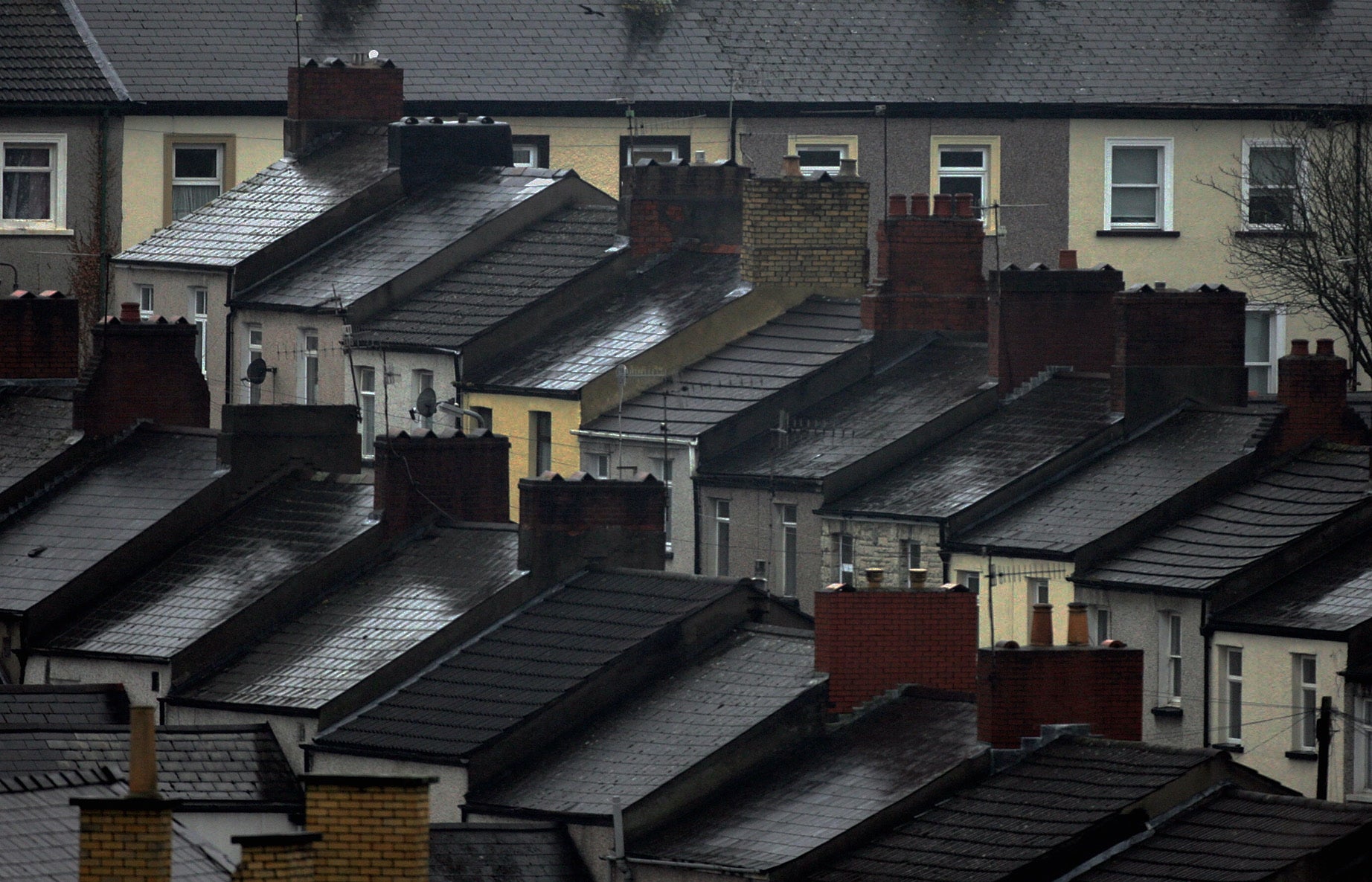
“For someone then to tell you, actually I’ve been raped by my partner, and then try to tell you their story in a 15-minute conference, and you then have to say ‘sorry, we have to go into court now’, isn’t right,” she says.
Another area of agreement between male and female victims of domestic abuse is that support should be made available to everyone who needs it, regardless of gender, ethnicity or sexual orientation.
Gale sees contradictions in the Domestic Abuse Bill which could marginalise hidden victims and prevent that from happening.
“One of the issues that lobbying groups bring up is the position of migrant women with no recourse to public funds, and they point out that everyone who has been a victim of domestic violence must be treated equally. If that’s not put right I don’t see how the government can comply with the Istanbul Convention,” she says.
As adult victims of domestic abuse continue to analyse and help build a better bill, the government’s eyes are slowly turning towards the children caught up in the violence.
Thought of as passive bystanders for years, children are now being recognised as victims in their own right.
On 29 June, the Home Office issued a letter announcing that children would be classed as victims of domestic violence in the Domestic Abuse Bill. The clause says that a child who “sees or hears, or experiences the effects of, the abuse” and is related to the person being abused or the perpetrator must be recognised as a victim of domestic abuse in connected legal proceedings.
A guide published by the Royal College of Psychiatrists warns about the effects of domestic abuse on children, including heightened states of anxiety which over time can develop into post-traumatic stress disorder.
The long-term effects of domestic abuse for children are also stark, and include violent outbursts, poor mental health and a heightened risk of health problems throughout their adult lives.
“My daughter is a victim. Children are the forgotten victims of domestic abuse. They have to witness it, they have to grow up with it and it’s horrendous for them,” Paul says.
As the Domestic Abuse Bill makes its way through the House of Lords over the coming weeks, some amendments will be fine-tuned while others will be lopped off and forgotten. Those which survive the cull will set the tone for this new law and the outcomes of domestic violence cases, for years to come.
And while the Domestic Abuse Bill may look like just another piece of legislation from the outside – dry, sweeping and filled with words – its pages are being held up by the anguish of thousands of victims who want to create a future free from violence and abuse. It is their bill.
Anyone who requires help or support can contact the National Domestic Abuse Helpline which is open 24/7 365 days per year on 0808 2000 247 or via their website, nationaldahelpline.org.uk




Join our commenting forum
Join thought-provoking conversations, follow other Independent readers and see their replies
Comments